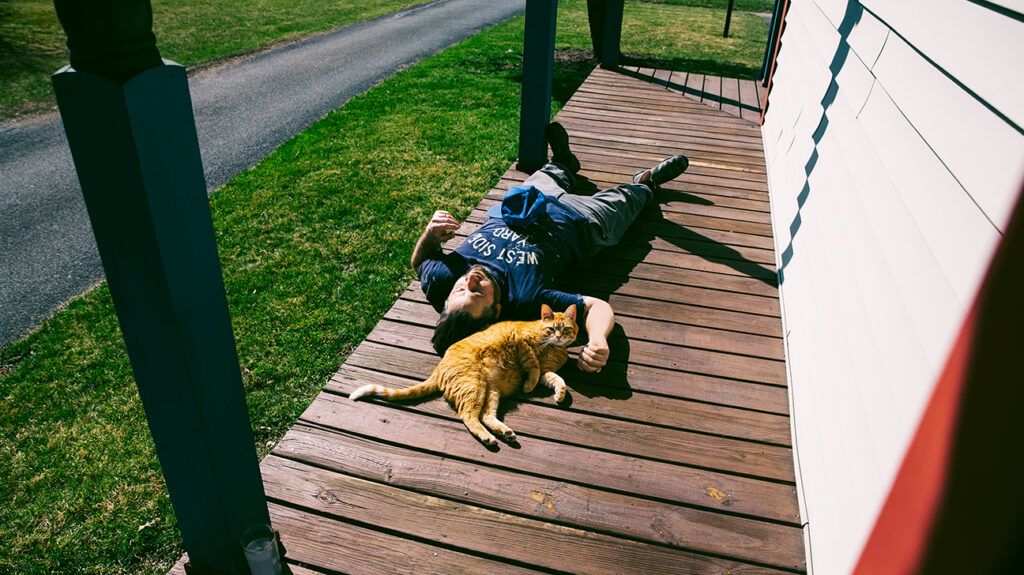Do you still feel debilitating fatigue after your COVID-19 illness? It might be COVID-19 fatigue syndrome.

Fatigue is a common symptom of COVID-19, which usually resolves within 2 to 3 weeks. But if it lingers for weeks or even months after your illness, it may be COVID-19 fatigue syndrome.
COVID-19 fatigue is different from the “pandemic fatigue” reported by those who grow weary of isolation and restrictions.
A 2021 report from the International Association for the Study of Pain suggests that 1 million cases of long-term fatigue may emerge from the COVID-19 pandemic.
Recent research estimates that who contract the coronavirus experience lingering symptoms, of which fatigue is the most common.
The
Post–COVID-19 fatigue is not the kind of fatigue you normally feel after strenuous activity, like cleaning your house or finishing up a long workday.
This fatigue:
- goes beyond tiredness
- limits your activity
- persists despite resting and getting a good night’s sleep
Some
A 2021 report from Columbia University’s School of Public Health showed the two conditions share symptoms, such as:
- unrefreshing sleep
- crashing after exercise (post-exertional malaise)
- a general sense of being unwell after minor physical or cognitive exertion
- problems with memory loss and attention
Other
- exhaustion
- unexplained muscle and joint pain
- poor concentration
- headaches
- anxiety
Some mental health conditions, including burnout, may accompany post–COVID-19 fatigue syndrome.
COVID-19 fatigue syndrome symptoms
The
- difficulty breathing or shortness of breath
- a worsening of your lingering symptoms after any physical or mental activities
- brain fog
Ed Yong, who won a 2021 Pulitzer Prize for his coverage of the COVID-19 pandemic, said tens of thousands of people have been identified as having “long-hauler symptoms” many months after their COVID-19 disease. He said he suspects the actual number is much higher, in the hundreds of thousands.
Symptoms of
It’s well known that chronic fatigue can be triggered by viral infections, according to Yong. The job for researchers now is to determine how COVID-19 triggers long-term fatigue and how close it is to chronic fatigue syndrome.
Long COVID can be considered a disability under the Americans with Disabilities Act (ADA) as of July 2021, according to the U.S. Health and Human Services Department.
You can go here for more information on disabilities and learn how to claim disability if you need assistance.
People always want to know how long post–COVID-19 fatigue lasts. The answer is, doctors don’t currently know. It can be weeks or even months.
The best thing you can do to manage COVID-19 fatigue is to practice self-care and be kind to yourself.
Here are some tips from the United Kingdom’s National Health Service (NHS) on how to take care of yourself while you heal.
In the interim you might want to:
Let people know
People likely won’t intuitively understand that you have a medical fatigue condition. You might talk with friends, family, and co-workers with whom you feel comfortable. You can explain that you may need extra time to do things in the next month or so — and understanding as you juggle personal and professional activities.
Get enough sleep
You’ll need enough quality sleep to overcome fatigue. But with COVID-19 fatigue, you may need even more. The NHS offers these tips for “sleeping well” during and after a COVID-19 diagnosis.
Plan your day
It might help to be realistic when planning your days, mindful of needed rest breaks. You could consider asking for help and delegate when you can. Try to be kind to yourself. You can only do the best you can, and your best might change daily.
On days when you feel good, you might take care to still pace yourself, not overdo it, to avoid that post-exertional malaise.
Try relaxation exercises or meditation
Some people report post-COVID anxiety. Intentionally calming down your body and mind can be helpful.
You may likely feel refreshed and at least a little more energized. Deep breathing techniques for anxiety can help you feel calmer and more positive about your condition.
Keep active
It may sound counterintuitive to keep active when you’re fatigued. But the NHS points out that energy levels get a boost from an active lifestyle. Maintaining a low activity level can increase your fatigue.
The NHS provides pointers on “getting moving again” after a period of illness.
According to the NHS, it may be time to see a doctor if your fatigue persists long after your recovery and is limiting your daily life. You may want to consider making a doctor’s appointment if:
- your fatigue is worsening instead of improving
- your fatigue is unchanged a month after your COVID-19 recovery
- your symptoms are worrying you
- you have new symptoms
COVID-19 fatigue syndrome is when debilitating fatigue continues after your medical recovery from COVID-19 illness. It may also include symptoms like brain fog, headaches, and increased fatigue after mental or physical exertion.
Your best treatment might be self-care such as:
- limiting your daily activities
- staying active
- eating a nutritious diet
- practicing relaxation exercises
It may be time to see a doctor if your symptoms begin to worsen or if after a month, you see little improvement.
Health experts are learning more about long-haul COVID-19 every day, and many post–COVID-19 treatments are becoming available.
